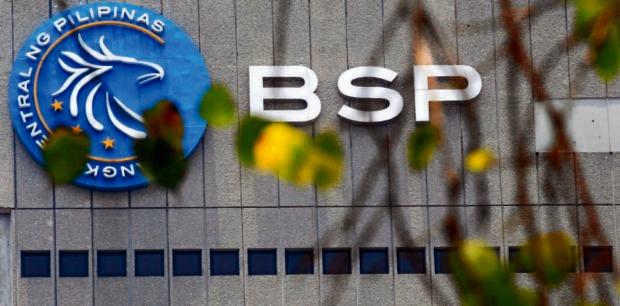MANILA, Philippines—With economic recovery in full swing, the national government on Friday (May 20) repaid the P300-billion zero-interest, short-term loan extended by the Bangko Sentral ng Pilipinas (BSP).
“The repayment fulfills the goal of Finance Secretary Carlos Dominguez III to unwind the pandemic-related liquidity support from the BSP before the start of the next administration,” the Department of Finance (DOF) said in a statement.
It added that “the early repayment was made possible by the sooner-than-expected return of the economy to its pre-pandemic strength.”
The provisional advances were supposed to mature on June 11.
The Philippines’ gross domestic product (GDP) grew by a stronger-than-anticipated 8.3 percent year-on-year during the first quarter and already reverted to pre-pandemic output levels.
Robust first quarter growth helped “attain revenue collections growth of 12.6 percent over the same period,” such that the budget deficit narrowed to P317 billion and “left the government in a strong cash position,” the DOF said. The 6.4-percent fiscal deficit as a share of GDP in the first quarter of 2022 was the smallest during the prolonged COVID-19 pandemic.
“The advance payment of the national government’s P300-billion provisional advances from the BSP underscores the continued strong fiscal position of the Duterte administration despite the financial challenges from the pandemic and, later, the Russia-Ukraine conflict. Its solid macroeconomic fundamentals—made even stronger by the game-changing reforms carried out by President Duterte during the COVID-19 crisis to further liberalize the economy and attract investors—will return the Philippines soon enough to its pre-pandemic path of rapid and inclusive growth,” Dominguez said.
BSP Governor Benjamin Diokno echoed the same on Friday, telling an online seminar organized by the Tokyo-based think tank Asian Development Bank Institute (ADBI) that the early repayment formed part of “unwinding the extraordinary measures” which the government had undertaken at the height of the health and socioeconomic crises inflicted by COVID-19.
“The repayment of the P300-billion outstanding provisional advances culminates the pandemic-related financing assistance of the BSP and is part of a broader exit strategy from the accommodative policies that once helped the economy stay afloat but are no longer needed based on growing evidence that economic recovery is already firmly entrenched,” the DOF said.
To recall, the national government borrowed P540 billion from the BSP during the latter part of 2020 and in 2021, but the amount was reduced to P300 billion this year although as much as P600 billion can be borrowed from the BSP under The New Central Bank Act or Republic Act No. 7653.
The BSP’s new charter under RA 7653 allows it to provide short-term financing to the national government, equivalent to a fifth of its average yearly income during the last three years.
At the height of the COVID-19 crisis, “the grant of provisional advances had enabled the government steady access to cash for the uninterrupted delivery of large fiscal response and recovery measures despite the lower revenue collections and disruptions to financial markets experienced throughout the last two years,” the DOF said.
But the DOF said provisional advances became smaller this year amid “sustained economic recovery and consequent strengthening of revenue collections last year.”
During the first quarter, the Philippines already raised 35 percent of its full-year P2.2-trillion gross borrowings program, the DOF said.
“The national government was able to raise P233 billion from loans and bonds in the external market and P549 billion through the issuance of government securities in the domestic market, despite the challenging financing conditions related to the normalization of global interest rates and spillovers from the military conflict between Russia and Ukraine.”
